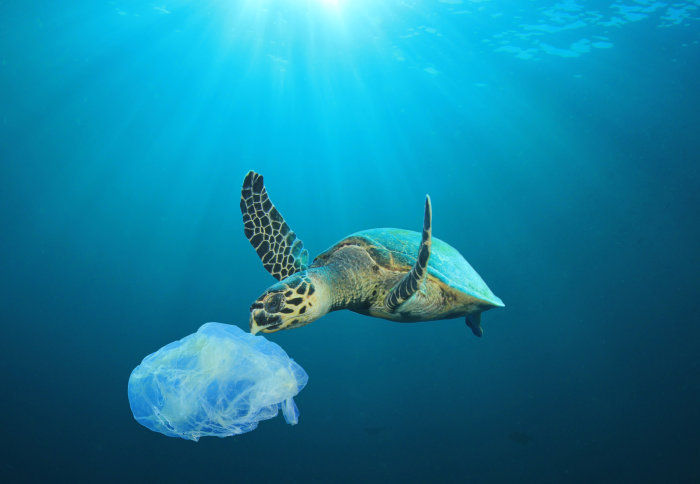Conservation messaging and clinical connections: News from the College

Here’s a batch of fresh news and announcements from across Imperial.
From finding the most effecting conservation messaging, to a new clinical connection for patients with rare heart conditions, here is some quick-read news from across the College.
Messaging matters in conservation
 The right messaging can influence attitudes and change behaviour, and if used effectively could have an impact on conserving global biodiversity.
The right messaging can influence attitudes and change behaviour, and if used effectively could have an impact on conserving global biodiversity.
A study led by Australian researchers and including Dr Morena Mills from Imperial reviewed how conservation messaging is designed and found there is scope for using more message theory from other disciplines.
For example, in public health messaging there is more use of audience segmentation – targeting messages to specific groups of people – and evaluation of message effectiveness.
The team also suggest moving away from ‘raising awareness’ messaging, which aims to spur action by filling in knowledge gaps for people. Instead, social influence and habit changes may be more effective.
Read the full paper in the journal Biological Conservation.
How not to underestimate population sizes
 Trying to find out how many individuals are in a population – whether it’s people in a country, patients with certain diseases, or animals in an ecosystem – often leads to undercoverage of the true population size.
Trying to find out how many individuals are in a population – whether it’s people in a country, patients with certain diseases, or animals in an ecosystem – often leads to undercoverage of the true population size.
To tackle this, multiple datasets are often used, such as a census, a post-census survey, and administrative records to determine how many people live in an area. Combining the datasets can lead to a better estimate, but the inter-relationships among the datasets can affect the possibility to obtain a correct estimate of the population size.
Dr Prajamitra Bhuyan from Imperial and Dr Kiranmoy Chatterjee from the Indian Statistical Institute came up with a new statistical model that better estimates the population size than current models.
Read the full paper: On the estimation of population size from a dependent triple-record system. (Journal of the Royal Statistical Society, Series A).
BEIS minster visits White City
 Lord Henley, Parliamentary Under-Secretary of State at the Department for Business, Energy and Industrial Strategy, visited the White City Campus to hear how Imperial is supporting early-stage biotech startups at the White City Incubator.
Lord Henley, Parliamentary Under-Secretary of State at the Department for Business, Energy and Industrial Strategy, visited the White City Campus to hear how Imperial is supporting early-stage biotech startups at the White City Incubator.
He was welcomed to White City by Graham Hewson, Head of Incubation at Imperial, and Professor Richard Kitney, Co-Director of SynbiCITE – the UK’s national centre for commercialisation of synthetic biology – which is co-located at Imperial’s I-HUB.
As part of the visit, Lord Henley met with CustoMem, a student founded startup developing a new biomaterial to capture and recycle hazardous micropollutants from industrial wastewater. Based at the White City Incubator, CustoMem are former winners of SynbiCITE’s Bio-start competition and last year received a €1.4m grant from the EU’s Horizon 2020 programme to bring their product to market.
Reviewing AI impact
 On Wednesday the Committee on Standards in Public Life hosted a roundtable at Imperial as part of its review into artificial intelligence and its impact on public standards.
On Wednesday the Committee on Standards in Public Life hosted a roundtable at Imperial as part of its review into artificial intelligence and its impact on public standards.
Chaired by Imperial’s Vice-Provost (Research and Enterprise) Professor Nick Jennings and attended by leading academics and experts, the session will inform the Committee’s final report advising the Prime Minister on the ethical and practical challenges of the increasing use of AI in public life.
The discussion covered issues ranging from clarifying responsibilities in AI, to data bias and algorithmic transparency, and preventing abuse of AI. Dr Mark Kennedy also joined the roundtable to present some of the innovative thinking in this space happening at Imperial.
Heart Health
 A new online platform connecting patients and researchers could help to develop new treatments for rare heart conditions.
A new online platform connecting patients and researchers could help to develop new treatments for rare heart conditions.
The platform, called Heart Hive will enable patients in the UK with heart muscle conditions to sign up to take part in clinical trials.
Led by Dr James Ware and Dr Angharad Roberts from the NHLI, Heart Hive will give patients access to the latest research projects, and provide researchers with a pool of potential patient volunteers, enabling them to explore possible treatments faster.
The project is a collaborationbetween Imperial, Royal Brompton Hospital and the MRC London Institute of Medical Sciences.
For more information, visit the team’s Crowdfunder page.
–
Want to be kept up to date on news at Imperial?
Sign up for our free quick-read daily e-newsletter, Imperial Today.

Article text (excluding photos or graphics) © Imperial College London.
Photos and graphics subject to third party copyright used with permission or © Imperial College London.
Reporter
Andrew Youngson
Communications Division
Dan West
Estates Division
Ms Helen Johnson
Communications Division
Ryan O'Hare
Communications Division
Hayley Dunning
Communications Division
Tom Rutland
Communications and Public Affairs